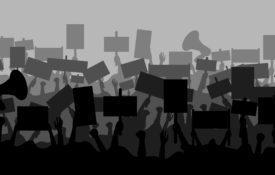-
Yale’s Happiness Professor Says Anxiety Is Destroying Her Students
Since the Yale cognitive scientist Laurie Santos began teaching her class Psychology and the Good Life in 2018, it has become one of the school’s most popular courses. The first year the class was offered, nearly a quarter of the undergraduate student body enrolled. You could see that as a positive: all these young high-achievers looking to learn scientifically corroborated techniques for living a happier life. But you could also see something melancholy in the course’s popularity: all these young high-achievers looking for something they’ve lost, or never found.
-

Freedom Versus Security: Can We Find the Right Balance?
A paper published in Perspectives on Psychological Science suggests that restricting freedoms may have unintended negative consequences for behavior and health, but psychological science may help strike a balance.
-

Is Your Identity a Concern? Smartphone App Usage Alone May Give It Away
The amount of time you spend each day using different smartphone apps may be enough to reveal your identity, according to new research published in the journal Psychological Science.
-
Losing Your Keys Doesn’t Mean You’re Losing Your Mind. Here’s How to Find Your Stuff.
Sasha Bradford doesn’t have time to lose things. She’s a working mom with lots of hobbies, and when she misplaces her keys or important papers — or leaves a favorite purse at a restaurant — she becomes frustrated and irritable. “It impacts me greatly,” said Bradford, 34, a D.C.-based federal contracting officer who blogs about mental health. Bradford has attention-deficit/hyperactivity disorder, which makes her “prone to put things places and not remember where I put them,” she said. She’s learned to adapt, in part by writing down where she has stored valuables, such as expensive jewelry, and setting micro goals. For example, “every time I travel, I typically forget or lose something.
-
Can Single People ‘Manifest’ a New Partner?
Just over a month before Jocelyn Woods and Mia Garcia met, they sat down independently and listed the qualities that each was seeking in a partner. “From how they cooked to the interactions they would have with their family, I was extremely specific,” said Ms. Woods, a 23-year-old director who lives in Los Angeles. Later, the pair would meet at a friend’s birthday party, feel “immediately like best friends” (according to Ms. Garcia, a 21-year-old musician who also lives in Los Angeles) and then, four weeks into dating, show each other these pages. Had they somehow manifested their relationship?
-
A Plea for Better Working Conditions for Young Scientists
It’s been a while since I took the lead on writing one of these columns. The last time I did so was in June 2020, when I wrote about my experiences as a Black scientist. I have been relatively quiet since then not because I haven’t wanted to share advice with our readers, but because lately I just really don’t know what to say to young scientists that would be helpful. When we started this column 4 years ago, I had just started my faculty position and I agreed to join the team because I believed in the theory of change that inspired the column’s creation.

